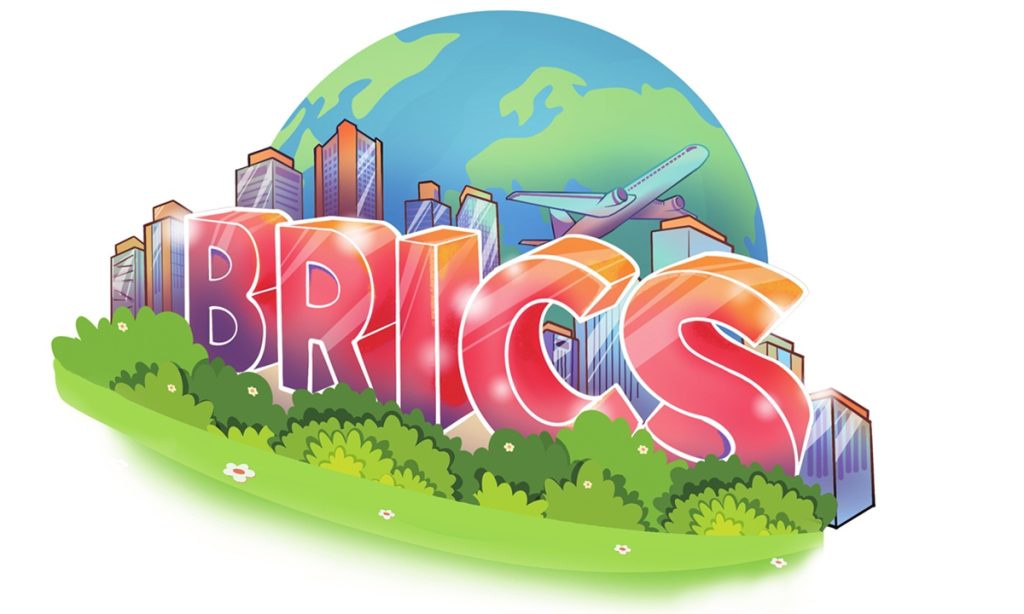For BRICS, pursuit of multipolarity is not akin to ‘anti-Westernism

During its chairmanship of BRICS this year, Russia will champion the vision of a global systemic transition to multipolarity in the hundreds of events that it has planned before the group's summit in Kazan sometime in October. The brief US-led unipolar moment that occurred in the aftermath of the Soviet Union's dissolution gradually gave way over the past three decades to a more equitable distribution of influence in the international system.
This complex process unprecedentedly accelerated since the start of Russia's special operation in February 2022. This prompted the West to impose sanctions on Russia and it put pressure on other countries to follow suit. Many countries retained their mutually beneficial ties with Russia and refused to impose such sanctions. They refused to abide by the West's demands, not because they were choosing to stand in solidarity with Russia's special operation, but out of economic pragmatism, choosing to exercise their sovereignty. This had a significant impact on the world.
At this point in the global systemic transition, there's no longer any doubt among objective observers that multipolarity is inevitable, though it'll still take a lot of time for this world order to fully emerge. Western hegemony was broken by the majority of the international community defying its pressure to sanction Russia, and all those countries also saw how the West weaponized financial instruments and waged information warfare against Russia. None of them want to go back to unipolarity.
These observations explain why dozens of countries sought to join BRICS last year, which resulted in the organization's Johannesburg Summit doubling the number of permanent members to 10 after Egypt, Ethiopia, Iran, Saudi Arabia and the United Arab Emirates were invited to join. Argentina was also offered this opportunity too, but newly elected President Javier Milei declined the offer. Nevertheless, the group's expansion generated enormous attention from the global media, including some negative coverage.
Iran's newfound membership and Russia's chairmanship this year prompted some Western commentators as well as those across the Global South with unipolar worldviews to fearmonger that BRICS is becoming an "anti-Western bloc." This narrative aims to scare their audience about the intentions of its members so as to precondition them for supporting some Western reaction that has yet to materialize. Simply put, it is baseless rabblerousing, but some people are still regrettably influenced by this claim.
For that reason, it's important to debunk this false perception while clarifying that the pursuit of multipolarity isn't akin to "anti-Westernism" in any objective way, but only in a zero-sum hegemonic one. To begin with, apart from Iran and Russia, the rest of the group's members either have relatively cordial or excellent ties with the US. This includes China, which just held its first military talks with the US in more than two years and whose leader President Xi Jinping met with US President Joe Biden as recently as November.
Second, Russian Foreign Minister Sergei Lavrov confirmed in an interview late last month that "BRICS is not an organization, but an association." Such a difference is more important than observers might think since an organization implies official obligations while cooperation within an association is purely voluntary. Accordingly, it's unrealistic to imagine that those member countries that enjoy relatively cordial or excellent ties with the US would go along with any speculative anti-Western proposals during Russia's chairmanship.
Third, BRICS' modus operandi has evolved in recent years to focus on the acceleration of financial multipolarity processes, particularly prioritizing the use of national currencies and pioneering non-Western payment systems that can't be weaponized against members like SWIFT was against Russia. This form of cooperation is apolitical and driven by shared financial interests that combine to speed up the emergence of a more equitable global system. It's not directed against anyone, but is for all their people.
And finally, the last point to make builds upon the preceding one, and it's to explicitly clarify that none of the abovementioned factors are "anti-Western" in any objective way, only in a hegemonic zero-sum one. Those among the Western elites who remain under the delusion of their self-perceived "supremacy" over others feel upset with how multipolar processes erode their global dominance. However, in reality, the reduction of international inequality stabilizes the world and makes it a better place for the West too.
Less inequality leads to less mistrust between the Global South and the West, thus reducing tensions between the former's major countries and the latter's de facto US leader. The resultant conditions are conducive to mutually beneficial cooperation based on each party's complementarities, which in turn creates relations of complex interdependence that are difficult for any side to unilaterally "decouple" from. This solidifies trust and leads to more predictable relations across the board.
The problem with contemporary international relations is that the Western elites don't want to admit that unipolarity is over and their hegemony won't return, hence why they continue aggressively pushing back against multipolar processes, albeit in vain but still with much damage. This delusional and recalcitrant attitude is destabilizing the world at precisely the moment when all responsible members of the international community must work as closely together as possible to stabilize it.
As the global systemic transition to multipolarity rolls on, which is expected to be boosted in no small part by Russia's BRICS chairmanship this year, international inequality will be further reduced with all that entails for restoring balance to relations between the Global South and the West. This envisaged outcome isn't "anti-Western" but pro-humanity since it will gradually stabilize global affairs to everyone's benefit. Far from being the hostile bloc that critics fearmonger that it is, BRICS is exactly what the world needs right now.